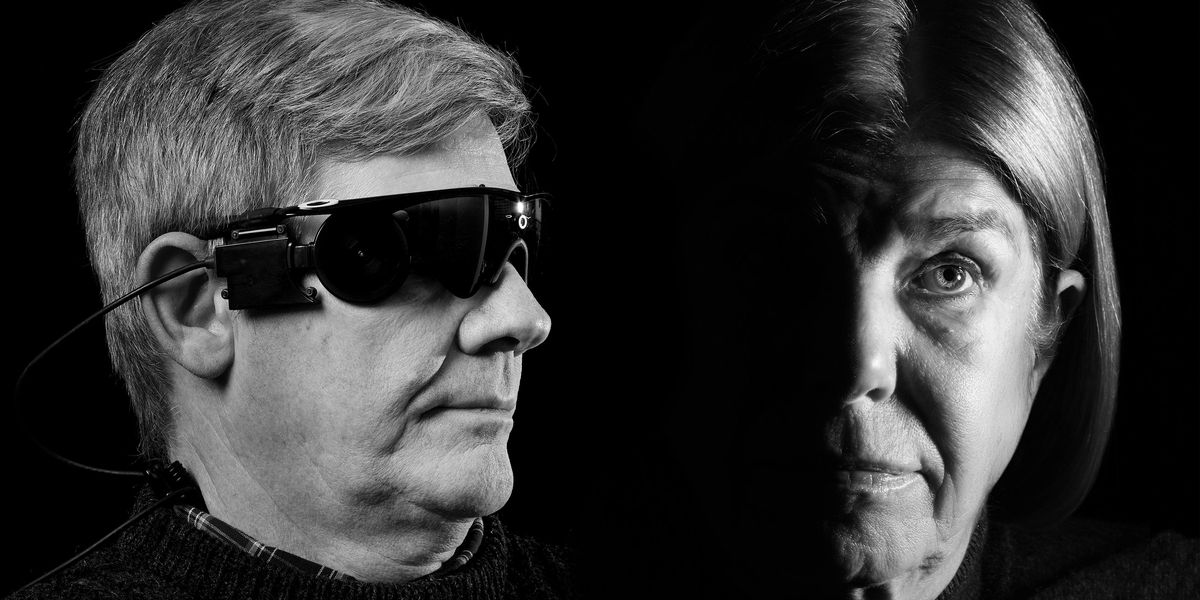Terry Byland is the only person to have received this kind of implant in both eyes. He got the first-generation Argus I implant, made by the company Second Sight Medical Products, in his right eye in 2004 and the subsequent Argus II implant in his left 11 years later. He helped the company test the technology, spoke to the press movingly about his experiences, and even met Stevie Wonder at a conference. “I went from being just a person that was doing the testing to being a spokesman,” he remembers.
Yet in 2020, Byland had to find out secondhand that the company had abandoned the technology and was on the verge of going bankrupt. While his two-implant system is still working, he doesn’t know how long that will be the case. “As long as nothing goes wrong, I’m fine,” he says. “But if something does go wrong with it, well, I’m screwed. Because there’s no way of getting it fixed.”
Obviously bionic implants can be of a far more critical nature than smart speakers, IoT devices, weather stations, etc, but it is a sobering reminder that nothing in technology is here forever. You do have a measure of control if the device works offline and has some form of open source community driven support, but if it is dependent on a vendor's proprietary cloud service, it can stop working tomorrow and becomes a useless paper weight.
It's a good reminder again that consumers want a right to repair, and devices that can continue to operate without a cloud service. Another simplistic example is especially Android phones, which cease to receive updates after 3 years. At least in many cases, a custom ROM can be flashed to continue using that phone for many more years. With many clouds, if the services ceases to work for whatever reason, you have nothing usable.
See
Their Bionic Eyes Are Now Obsolete and Unsupported#
technology #
medical #
bionics #
implants #
cloudservice 
These early adopters found out what happened when a cutting-edge marvel became an obsolete gadget... inside their bodies.
